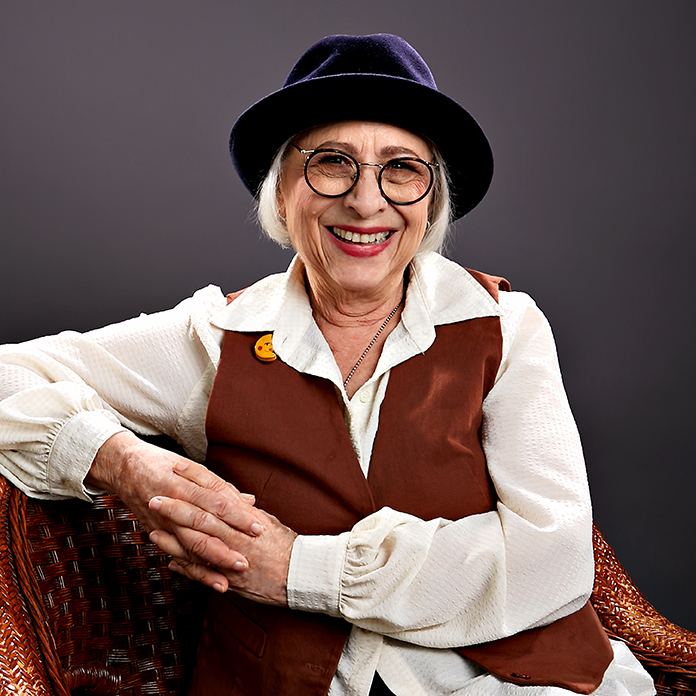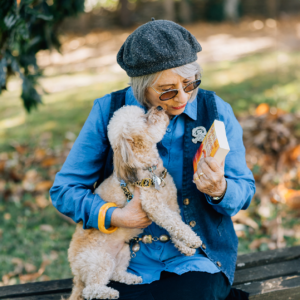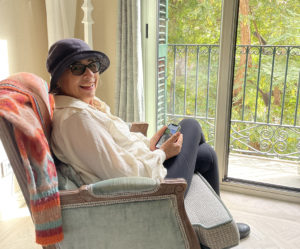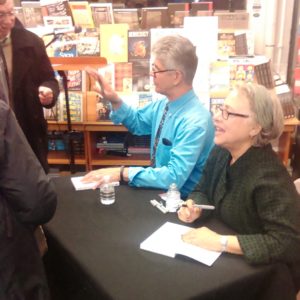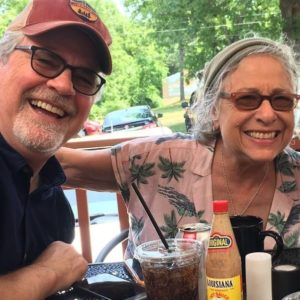The March Selection of the Sage-ing Book Club, previewed below, will be Nan Narboe’s Aging—An Apprenticeship.
The 2017 classic provides us with a front row seat to essays about aging by Ellen Gilchrist, Judy Blume, Frederick Buechner, Ram Dass, Gloria Steinem and 50 other writers coming to terms with the inevitability of imperfection, the wrestle with mortality and the overcoming of societal attitudes to wrest meaning out of both chaos and opportunity, come what may. Following are some of my favorite passages.To read discussion prompts and participate in the online conversation, see the comment section below.
–Carol Orsborn
————————————
AGING—AN APPRENTICESHIP
AMAZING STUFF COMING
“With age, over the last few years, I’ve found that my mind is synthesizing information in startling and deeply satisfying ways. It’s as if all the cramming of experience into my head and heart has finally resulted in a reliable sense of self. It manifests as a higher awareness; very much spiritual in its nature.
It manifests as a capacity for calming and ordering one’s reactions to the world. It has made me smarter and more self-assured. And the source is hard for me to pin down. But I believe it will come to any of us who are actively engaged in life. It’s as if the divine says, ‘You’ve done enough struggling to understand. Here, have a glimpse of peace…
If you can turn your attention from what is past, towards the miraculous things that are coming, you will see patterns of divinity that younger eyes often cannot spot…Trust me, there’s some amazing stuff coming. For real.”
–Mark Greene, Editor for the Good Men Project
__________________________
THIS VAST LIFE
“Every morning, I vow to be grateful for the precious gift of human birth. It’s a big gift, and it includes a lot of stuff I never particularly wanted for my birthday. Some of the things in the package I wish I could exchange for a different size or color. But I want to find out what it means to be a human being—my curiosity remains intense even as I get older—so I say thanks for the whole thing. It’s of a piece…
I love the vow: ‘Dharma gates are boundless; I vow to enter them.’ I keep giving myself away to that moment, and the next moment receives me. I just have to step through.”
–Susan Moon, writer and lay teacher in the Soto Zen tradition
___________________________
SLOWING DOWN
“It is true that we slow down in old age. We deal with aches and pains, bouts of illness and feelings of vulnerability that we did not know in our bulletproof youth. We can focus on our complaints or we can appreciate the richness of slowing, the quality of awareness that it brings, the sense of connection to our bodies and the earth.
Old age grounds us and from that grounded point of view, we can begin to attend to our inner and outer world in a way that we could not when we were speeding over the surface of things.”
–Victoria Howard, retired core faculty Naropa University
________________________
LOSING TRACK OF TIME
“Change seems recognizable only after it’s happened, like putting one’s foot down for a familiar stair—and it’s not there. It had taken a lot of living, plus time to metabolize that living, plus seeking out role models of great old women, plus realizing that my body knew how to age even if I didn’t, to realize that the ‘endless’ central years of life were over. A whole new unimagined country lay ahead…
The art of living in the present is not so much controlling time, it’s losing track of time. This is most likely to happen when we surrender to something we love to do; not because it’s a demand, or an emergency or an inability to do anything else. Seeking out what we love so much that we lose track of time when we’re doing it…that is a hint of the timeless Now.
–Gloria Steinem, feminist author and activist
___________________________
IN THE BONES
I look at men and women my age and older, and their scalps and knuckles and spots and bulges, though various and interesting, don’t affect what I think of them. Some of these people I consider to be very beautiful, and others I don’t.
For old people, beauty doesn’t come free with the hormones, the way it does for the young. It has to do with the bones. It has to do with who the person is. More and more clearly it has to do with what shines through those gnarly faces and bodies…
All the same, there’s something about me that doesn’t change, hasn’t changed, through all the remarkable, exciting, alarming, and disappointing transformations my body has gone through. There’s a person there who isn’t only what she looks like, and to find her and k now her I have to look through, look in, look deep.”
–Ursula K. Leguin, author
____________________________
THE END
“I have much to do with endings, as a writer of fiction…The need to give significance to simply chronicity: ‘All such plotting presupposes and requires that an end will bestow upon the whole duration and meaning,’ ) (Frank Kermode) This is the satisfaction of a successful work of fiction—the internal coherence that reality does not have. Life as lived is disordered, undirected and at the mercy of contingent events…
For some, psychoanalysis perhaps provides this—explanations, understandings. Most of us settle for the disconcerting muddle of what we intended and what came along, and try to see it as some kind of whole…
I am quite at home with the idea of my life—any life—as a bit-player in the lives of others… The party is nearly over, yes. And that euphemistic ending is somewhere over the horizon, but in the meantime there is this new dimension of life—often demanding, sometimes dismaying, always worth examining.”
–Penelope Lively, author
____________________
For a free subscription to Older, Wiser, Fiercer, click HERE
TO START OR JOIN THE DISCUSSION ON THIS BLOG AND BOOK: You are encouraged to share your thoughts with me and our community at the bottom of this blog as it is posted below at CarolOrsborn.com.
